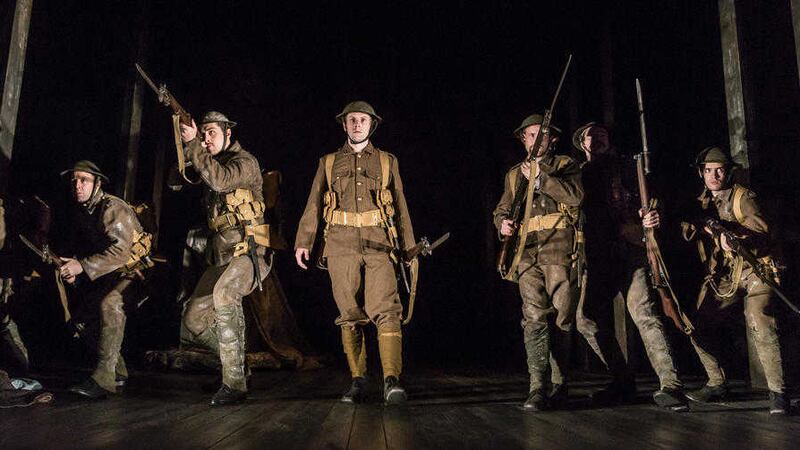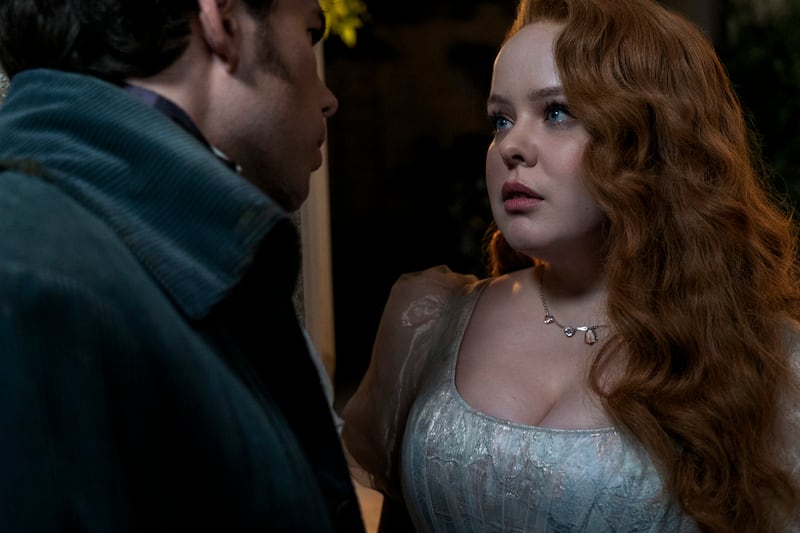WHEN it debuted at Dublin's Abbey Theatre in 1985, Frank McGuinness's Observe The Sons on Ulster Marching Towards The Somme was acclaimed for its powerful portrayal of men in wartime – specifically, eight very different soldiers in the UVF-dominated 36th Ulster Division.
Inspired by the war memorials he encountered while teaching in the north during the early 1980s, Buncrana-born McGuinness (62) won a clutch of awards for the drama, including the London Evening Standard's Most Promising Playwright award, the Ewart-Biggs Peace Prize and the Rooney Prize for Irish Literature.
Last Wednesday, the Co Donegal man was in France to see a new production of the play performed at The Ulster Tower in Thiepval, just yards from the actual Somme battlefields.
"It was extraordinary," enthuses McGuinness.
"We did it as a 'promenade' production in four different locations and we ended it at about 10:45pm in near darkness.
"It really was exceedingly potent to hear the cries of the men getting ready to go to die. It was very powerful to do it in that place. I certainly never thought that would happen when I first wrote it. I'm still shocked that the Abbey made it happen."
Directed by Jeremy Herrin, the revived Observe The Sons of Ulster Marching Towards The Somme was also performed at the Maison de la Culture in Amiens on the eve of the Somme centenary itself.
It is now running at the Lyric in Belfast, before going on tour to Derry's Millennium Forum, the Market Place Theatre in Armagh, Riverside Theatre in Coleraine, Letterkenny's An Grianan Theatre and finally The Abbey in Dublin.
McGuinness says he will make a point of seeing his second play performed in Coleraine, the Co Antrim town where it was written 32 years ago.
"I'd never really noticed the war memorials until I was working there," recalls the Professor of Creative Writing at University College Dublin of his days teaching at the north's University of Ulster.
"They're such a feature of towns in Northern Ireland. I spent a fair bit of time in both Coleraine and Fermanagh, so I made a kind of link between the names on the monuments and the young fellas I was teaching.
"That's what sparked the writing. It was a very shocking realisation, how young they were and how many of them there were."
In 1985 much was made of the fact that McGuinness was a Catholic writer from a nationalist background in the Republic tackling sensitive 'northern Protestant' subject matter.
However, while unionist soldiers at The Somme may have been a world removed from the striking Donegal workers that populated his acclaimed 1982 debut The Factory Girls, unionist culture wasn't exactly alien to McGuinness at the time of writing, as he explains:
"I'd taught in Coleraine for two years and made very strong friendships there," he tells me.
"I used to go up and down a fair bit, so I had a good idea of the way Ulster Protestants organised their society and how they led their lives.
"The one thing that did shock me from having to investigate it more closely for the play was how much diversity there was within 'Ulster' culture – not 'Catholic / Protestant' differences, but actually within Protestantism itself.
"There's enormous variation on what they believe and how they believe it. That very much filtered into the play – the characters are all from very specific locations, Coleraine, Derry, Sion Mills, Armagh, Belfast and Fermanagh. And they're all from very different professions.
"I wanted that kind of sense that they were unpredictable – that you cannot tell what someone is like just by where they're from, that they all have their individual bearings and idiosyncrasies."
Having said that, one of the key themes of the play is how war can be a great leveller when it comes to neutralising issues of class and creed.
"Absolutely," confirms McGuinness.
"When you're facing a barrage of bullets, it doesn't matter where you were born – you have to fight to protect yourself and the people around you. And in that crisis you reveal something very profound about yourself, I think."
The new production of Observe The Sons of Ulster Marching Towards The Somme is being staged in a very different Northern Ireland from the Troubles-stricken 1985 version, when the signing of the Anglo-Irish agreement precipitated the bitter 'Ulster Says No' campaign among many of the descendants of northern Protestant soldiers who fought and died for Britain at the Somme.
McGuinness says he's extremely pleased that the play – which remains exactly as written in 1985 – is being staged once again to coincide with the centenary of the devastating First World War battle.
"I'm very glad that the war in the north has subsided and that they're learning slowly but surely to have the patience to govern themselves," he says.
"That's an heroic enterprise – certainly more heroic than picking up a gun. But, that said, I still think it's imperative that we remember where we came from and that we remember the stunning amount of courage that was shown on that day.
"I really was keen that Sons of Ulster be done again this year for the year that was in it. I remember it was playing at the Hampstead Theatre in London on July 1 1986 and hardly anyone commented on it being the actual 70th anniversary.
"It's only in the last 15 to 20 years that the actual day has been recognised in the UK as much as it has in the north of Ireland. I'm very glad that it is now being remembered with such potency."
Thirty-one years on, the playwright admits he now reacts differently to seeing his own work performed by a new generation of actors.
"I was in my 30s when it was first on – I'm now in my 60s, and I really do get this powerful sense of transience," McGuinness reveals. "I really can look at the characters now as my imaginary sons. That packs a very different wallop of a punch."
Next up from McGuinness will be the country and western music-themed play Donegal, written with his cousin Kevin Doherty of Four Men and A Dog fame.
It will debut with a five-week run at The Abbey during the Dublin Theatre Festival this September. There's talk of a potential tour after that, although McGuinness is not one for tempting fate.
"We'll see how it goes," he says cautiously.
"You never can count your chickens until they're hatched."
:: Observe The Sons of Ulster Marching Towards The Somme is at the Lyric theatre Belfast until July 16. See Lyrictheatre.co.uk for tickets and times.








